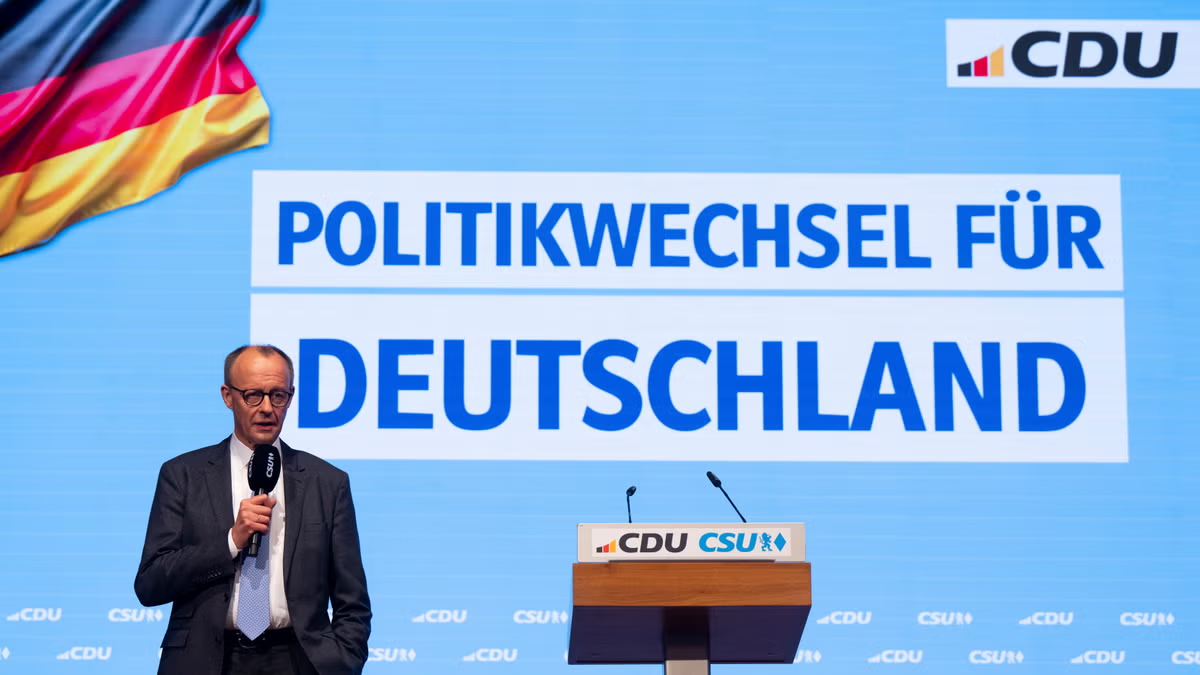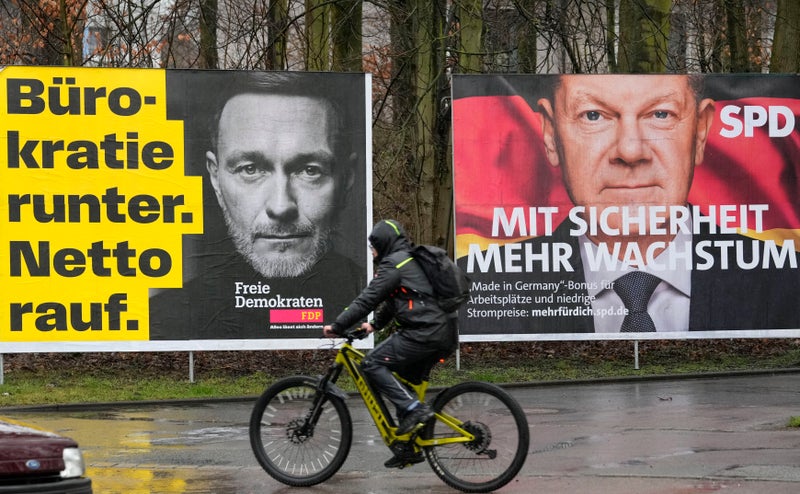Germans under 35 have been expressing frustration with the mainstream parties at the ballot box for some time, capturing headlines during last June’s European elections when the AfD made big unexpected gains among first-time voters.
Merz’s centre-right CDU/CSU bloc and Scholz’s Social Democrats (SPD), severely weakened in this election, now look condemned to cooperate in a not-so-grand coalition government to keep the far right at bay.
The party, which also made effective use of social media platforms such as TikTok to ram home its anti-Merz message, won among the 18-24 set with 25% of the vote, ahead of the AfD at 21% and CDU/CSU on 13%.
The AfD, for example, won 23% of men but only 17% of women while the SPD and the Linke claimed 18% and 11% of women’s votes respectively, compared with 15% and 7% of men’s.
The dramatic surge of the anti-migration, anti-Islam Alternative für Deutschland (AfD) sapped support from across the political spectrum to win one in five votes, but it will be excluded as a pariah party from any coalition negotiations.































